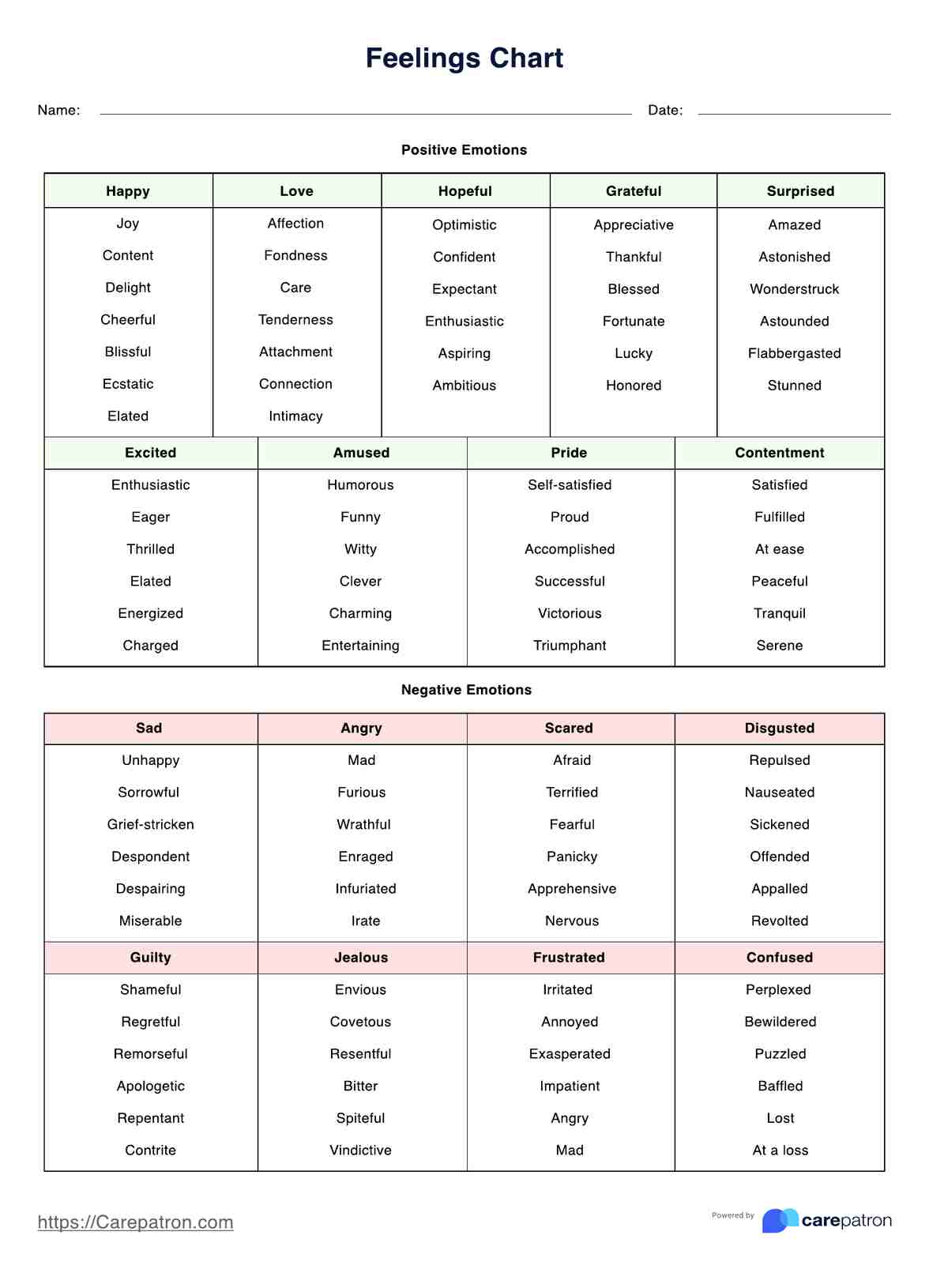This type of chart assists individuals, especially children, in recognizing and articulating their emotions, promoting emotional literacy, communication, and self-awareness.

Feelings Charts
Feelings Charts are a helpful tool for identifying and expressing emotions. Learn more about Feelings Charts and download a free PDF example today.
Use Template
Feelings Charts Template
Commonly asked questions
Therapists often use feelings or emotions charts as tools to facilitate emotional exploration, communication, and self-reflection during therapy sessions, aiding clients in expressing and processing their emotions.
Feelings Charts can be customized to include specific emotions, images, or colors tailored to individual preferences or therapeutic goals, making them versatile and adaptable tools.
EHR and practice management software
Get started for free
*No credit card required
Free
$0/usd
Unlimited clients
Telehealth
1GB of storage
Client portal text
Automated billing and online payments











